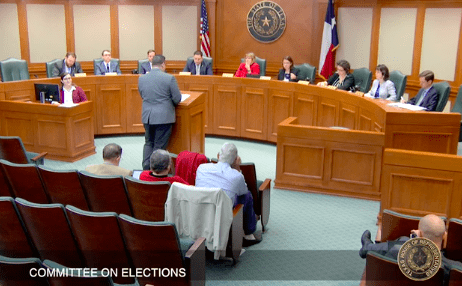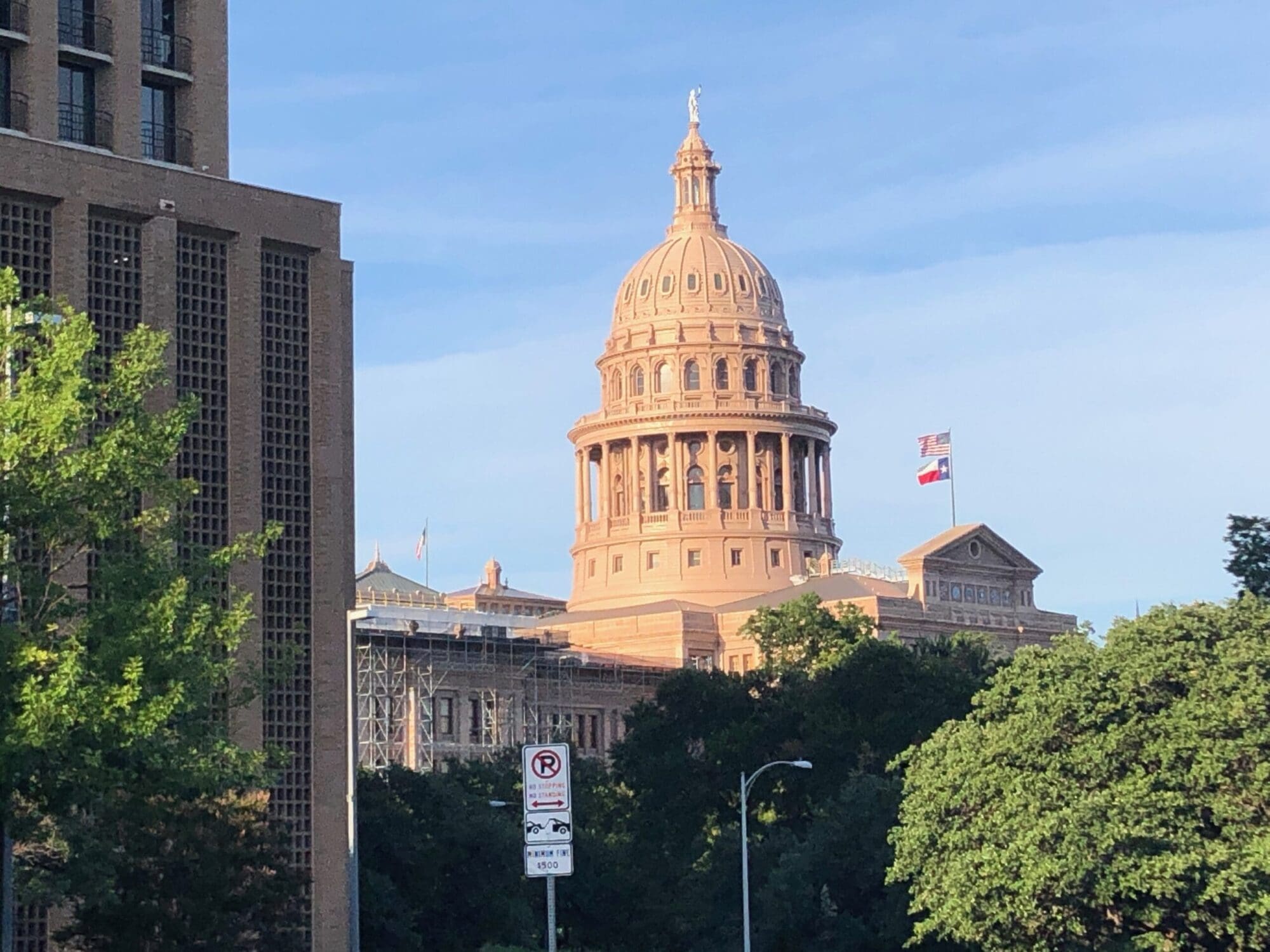Texas’ head of elections answered questions from state lawmakers Monday, mostly about recent efforts to identify and remove noncitizens wrongly added to county voter rolls throughout the state.
State Rep. Stephanie Klick (R–Fort Worth) invited Keith Ingram, Director of Elections at the Texas Secretary of State’s office, to speak at the House Committee on Elections’ initial meeting. In opening remarks, Chairman Klick said there is agreement among committee members that “some parts of the Election Code are archaic” and they will work to improve election laws this session.
Ingram began with an overview of the state’s decentralized election process, which consists of two basic components: maintaining the list of registered voters and conducting elections. County registrars are responsible for registering voters, Ingram explained, but “list maintenance is a collaborative effort” between the Secretary of State’s office and the counties.
“The law requires that our office provide the counties data on potential ineligibility based on death, felony convictions, or citizenship,” he said. “The law requires that counties take that data, along with information from any other source, to determine whether the voter is eligible or not.”
“If a voter cancelled in error, they can be reinstated immediately and vote a regular ballot,” he added.
State Rep. Celia Israel (D–Austin) quizzed Ingram on what she called a “hot issue”: the state’s recent effort to identify and remove noncitizens on county voter rolls statewide, using information in the Texas Department of Public Safety database. The state compared the list of registered voters with DPS data going back to 1996 of driver’s license applicants who were lawfully present noncitizens at the time of their last interaction with DPS.
Tens of thousands of matches were identified. The original list of 95,000 potential noncitizens registered to vote announced on January 25 was reduced a few days later with the removal of approximately 20,000 individuals who had been verified as citizens but inadvertently included on the list — a misstep that caused confusion among county officials and the public.
Also on January 25, the Secretary of State’s Elections Division issued an advisory to county voter registrars outlining a process for using the new data as part of their required voter list maintenance activity.
“Both state and federal law require this type of activity,” Ingram told lawmakers. “Federal law requires our office to have a general program to remove ineligible voters from the rolls. The specific state law at issue here requires us to use DPS data for voter registration purposes.”
State statute directs the Secretary of State’s office to use any data in DPS files for voter list maintenance activities, Ingram said, though current election law doesn’t require county registrars to act on this specific DPS data.
“We did not make this process up,” Ingram corrected Israel. “We implemented this process because the law requires it.”
“We do list maintenance processes all the time,” he added.
“The goal of any list maintenance is to do what the law requires,” Ingram said. “Ensure that eligible voters remain registered and ineligible voters are removed from the list.”
In this case, he said, his office “took great care to minimize the impact on eligible voters by using our strongest matching criteria with DPS’s data” to ensure the flagged voters were the same people in the DPS database.
Ingram said the state recognized they couldn’t use DPS data to identify voters who had since become naturalized citizens, but knew at least some counties had information at their disposal regarding people who registered to vote at naturalization ceremonies.
“We expected counties to use that data to whittle this list down,” he said.
Harris County, which has the largest number of registered voters of any county in the state and received the largest list of matches, almost immediately told the media they intended to do exactly that. Assistant County Attorney Doug Ray said on January 28 the county was going to compare the list of flagged voters it received from the state with a list of people who had gone through naturalization ceremonies and registered to vote in the county — data Harris County maintains but the state doesn’t receive.
“That’s why list maintenance is a collaborative process,” Ingram said. “That’s why we told counties to treat these matches as ‘weak’ matches [a designation that dictates how county officials follow up with flagged voters], even though they were the strongest matches we could make… so that every voter gets the benefit of the doubt.”
State Rep. John Bucy (D–Austin) asked Ingram why the lists were not pared down before sending them to counties. Ingram repeated that list maintenance is a collaborative process.
“We give the best data we can to the counties, then they use information at their disposal to whittle the list down,” Ingram said. “The only thing different about this is it’s a large dataset because it’s the first time we’re doing it, and it’s obviously politically sensitive.”
Last week, Secretary of State David Whitley faced tougher questioning on the list maintenance process from members of the Senate Nominations Committee, who may vote on whether to advance Whitley’s confirmation at their next meeting on February 14. The committee allowed public testimony on the nominee, including from the president of LULAC, a Latino rights organization that is suing Whitley.
LULAC is one of several left-wing organizations, along with MALDEF, the ACLU, the Texas NAACP, and League of Women Voters, suing or threatening to sue state and county election officials in order to block any effort to verify the citizenship of individuals on Texas voter rolls.
As of November 2018, Texas had a record-high 15.8 million registered voters statewide — 79 percent of the voting-age population. Under current law, no one verifies the citizenship status of voters. Applicants simply check a box on a voter registration form stating they are a U.S. citizen.
Israel suggested that applicants swearing under penalty of perjury when they sign a registration form — an “official state document” — constitutes “sufficient” notice to the state from everyone currently on the voter rolls that they are citizens.
Ingram confirmed that his office intends to send DPS data matches to county registration officials on a monthly basis going forward, providing much fresher data than the initial datasets sent to counties.
Klick said the Elections Committee will reconvene Monday, February 25, to begin hearing bills.
The entire meeting can be viewed HERE.
State Rep. Stephanie Klick (R–Fort Worth)
Chair
(512) 463-0599
State Rep. Philip Cortez (D–San Antonio)
Vice Chair
(512) 463-0269
State Rep. John H. Bucy III (D–Austin)
(512) 463-0696
State Rep. Dustin Burrows (R–Lubbock)
(512) 463-0542
State Rep. Briscoe Cain (R–Deer Park)
(512) 463-0733
State Rep. Celia Israel (D–Austin)
(512) 463-0821
State Rep. Mayes Middleton (R–Wallisville)
(512) 463-0502
State Rep. Valoree Swanson (R–Spring)
(512) 463-0572





